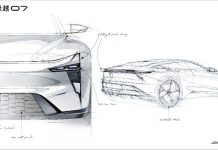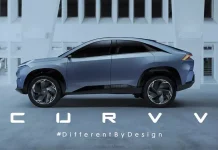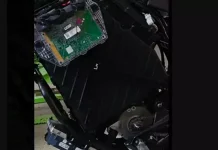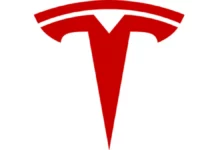Tesla’s Recall
Tesla is recalling over 2 million vehicles in the United States to install new safeguards in its Autopilot advanced driver-assistance system. This recall, the largest in Tesla’s history, encompasses nearly all Tesla vehicles on U.S. roads, aiming to ensure drivers remain attentive when using the system. This action follows concerns raised by the National Highway Traffic Safety Administration (NHTSA) that Autopilot’s software controls may not adequately prevent driver misuse, potentially increasing the risk of crashes.
Explore the impact of Tesla’s major recall of over 2 million vehicles due to Autopilot system concerns. This article delves into the implications of the recall, initiated by safety risks identified by the NHTSA, and Tesla’s response with a critical software update. Understand the significance of driver attention in the use of autonomous driving technology and how this event shapes regulatory scrutiny in the automotive industry. Perfect for car enthusiasts and tech followers, the piece examines the balance between innovation and safety, and its influence on automotive industry trends and consumer confidence in advanced driver-assistance systems

Autopilot System
Summary of Tesla Autopilot Recall:
- Affected vehicles: Over 2 million Tesla cars in the US across all models from 2012-2023.
- Reason for recall: Autopilot system raises safety concerns due to:
- Potential for a false sense of security in drivers.
- Misuse in dangerous situations.
- Inability to safely navigate certain road scenarios.
- NHTSA investigation: Initiated two years ago after 11 incidents involving Teslas on Autopilot colliding with parked emergency vehicles.
- Software update fix: Tesla will roll out an over-the-air update that:
- Provides more warnings to drivers who are not paying attention while on Autopilot.
- Limits Autopilot functionality if drivers repeatedly fail to regain control.
- Tesla agreement: Reached out to NHTSA to implement the software update as a recall remedy.
Safety Concerns
The NHTSA’s decision to initiate this recall was influenced by several factors. Acting NHTSA Administrator Ann Carlson highlighted the lack of driver attention when using the Autopilot system as a significant concern. The agency began investigating Tesla’s Autopilot in August 2021 following reports of fatal crashes involving the system. The NHTSA’s probe was prompted by more than a dozen crashes where Tesla vehicles hit stationary emergency vehicles, leading to an upgrade of the investigation in June 2022. They found that Autopilot could lead to “foreseeable misuse” due to inadequate driver engagement and usage controls.
Tesla’s Autopilot feature is designed to allow cars to steer, accelerate, and brake automatically within their lanes, and its enhanced version can assist in changing lanes on highways. However, these features do not make the vehicles fully autonomous. A key component of the Autopilot system is Autosteer, which helps maintain a set speed or following distance and keeps the vehicle in its driving lane. In response to the NHTSA’s findings, Tesla disagreed with the analysis but agreed to deploy an over-the-air software update. This update aims to incorporate additional controls and alerts to further encourage drivers to maintain responsibility while using Autosteer.
National Highway Traffic Safety Administration (NHTSA)
The updated software will be rolled out to 2.03 million Tesla Model S, X, 3, and Y vehicles in the U.S., dating back to 2012. The update, based on vehicle hardware, will include enhanced visual alerts, simplified engagement and disengagement of Autosteer, and additional checks upon engaging the Autosteer feature.
Driver Attention
Key Analysis
The key analysis of Tesla’s recall of over 2 million vehicles in the U.S. due to concerns with the Autopilot system highlights several critical aspects:
- Scale and Scope of Recall: This recall is significant both in terms of the number of vehicles involved (over 2 million) and its coverage, which includes nearly all Tesla vehicles sold in the U.S. since 2012. This encompasses the Model S, X, 3, and Y vehicles.
- Safety Concerns with Autopilot: The primary concern prompting this recall is the potential misuse of the Autopilot system. The NHTSA’s investigation, initiated in response to a series of crashes involving Tesla vehicles using Autopilot, particularly with stationary emergency vehicles, revealed that the system might not adequately ensure driver engagement. This could lead to situations where drivers over-rely on the system, increasing the risk of accidents.
- Tesla’s Response and Software Update: While Tesla disagreed with the NHTSA’s analysis, it has agreed to issue a software update. This update aims to enhance the existing controls and alerts to ensure that drivers remain attentive and responsible when Autosteer, a component of Autopilot, is engaged. The update will make the visual alerts more prominent, simplify the engagement and disengagement of Autosteer, and introduce additional checks when activating Autosteer.
- Regulatory Scrutiny and Investigations: The recall comes after extensive scrutiny by the NHTSA, which has been investigating Tesla’s driver-assistance systems since 2016. The NHTSA has opened numerous special crash investigations into Tesla vehicles, with a focus on incidents where Autopilot was suspected of being in use. These investigations have highlighted the potential risks associated with Autopilot, especially in cases where the driver fails to maintain control or is unprepared to intervene.
- Implications for Tesla and Autopilot Technology: This recall and the associated safety concerns raise questions about the current state and future development of autonomous driving technology, particularly in the consumer vehicle market. It underscores the challenges in balancing technological advancement with safety and the importance of driver responsibility in semi-autonomous vehicles.
- Impact on Consumer Confidence and Industry Standards: The recall may affect consumer confidence in Tesla and potentially in other automakers’ autonomous driving technologies. It also highlights the need for stringent industry standards and regulatory frameworks to ensure the safe deployment of such technologies.
This recall represents a significant development in the automotive industry, particularly regarding autonomous driving technology. It underscores the need for a careful balance between innovation and safety, and the critical role of regulatory bodies in overseeing the deployment of such technologies.
Software Update
Impact on Car Enthusiasts
The impact of Tesla’s recall of over 2 million vehicles in the U.S., primarily due to concerns with the Autopilot system, on car enthusiasts can be multifaceted:
- Perception of Advanced Automotive Technology: Car enthusiasts, who often have a keen interest in the latest automotive technologies, might view this recall as a pivotal moment in the development of autonomous driving systems. It highlights the complexities and challenges in creating reliable autonomous technologies, which could either temper enthusiasm for rapid advancements in this area or spur interest in how these challenges can be overcome.
- Trust in Driver Assistance Systems: Enthusiasts who value the integration of technology in enhancing driving experiences might reassess their trust in driver assistance systems. While some may be cautious about over-relying on these systems, others might be more interested in understanding the limitations and capabilities of such technologies, especially in high-end models like those offered by Tesla.
- Safety Concerns: The recall, driven by safety concerns, might lead car enthusiasts to be more critical and aware of the safety features in their vehicles. There could be a renewed focus on the balance between manual control and automated systems in ensuring safe driving experiences.
- Impact on Car Collecting and Valuation: For those enthusiasts who collect or invest in modern vehicles, this recall might influence their decisions. The long-term impact on the resale value and desirability of affected Tesla models could be a point of consideration.
- Regulatory and Industry Impact: Enthusiasts who follow industry trends might take an interest in how this recall influences regulatory approaches to autonomous vehicle technology. This could shape their expectations of future vehicle designs and technology integrations.
- Shift in Brand Perception: Tesla has a strong brand presence among car enthusiasts. This recall might impact how enthusiasts view the brand, its commitment to safety, and its position as a leader in electric and autonomous vehicle technology.
- Enhanced Driver Responsibility Awareness: The recall serves as a reminder of the importance of driver responsibility, even in vehicles equipped with advanced driver-assistance systems. Enthusiasts might become more vigilant about maintaining control and understanding the limits of these technologies.
- Influence on Future Automotive Innovations: For enthusiasts interested in the future trajectory of car technology, this event might signal a need for more robust testing and development processes for autonomous systems. It could influence expectations and excitement about future innovations in the automotive industry.
Tesla Autopilot Recall: Pros and Cons
| Aspect | Pros | Cons |
|---|---|---|
| Safety | Reduces potential accidents by addressing Autopilot issues. – Encourages driver attentiveness and control. – Improves handling of specific situations. | May create complacency due to increased system intervention. – Technical challenges in implementing the update effectively. |
| Transparency & Accountability | Demonstrates cooperation with NHTSA and commitment to safety. – Builds trust with consumers and regulators. | Potential damage to Tesla’s reputation for innovation and safety. |
| Convenience | Over-the-air update avoids physical recalls, saving time and cost. | Requires drivers to proactively download and install the update. |
Overall, the recall is likely to provoke a diverse range of reactions among car enthusiasts, from heightened interest and scrutiny of autonomous technologies to concerns about safety and the future direction of vehicle automation.
Conclusion
Since 2016, NHTSA has conducted more than three dozen special crash investigations into Tesla vehicles where driver systems such as Autopilot were suspected of being used. These investigations have been linked to 23 crash deaths to date. The NHTSA has expressed concerns about increased crash risks when Autopilot is engaged but the driver does not maintain responsibility or is unprepared to intervene.
Stay informed and engaged in the dynamic world of automotive technology and safety. If you’re a car enthusiast or interested in the latest developments in autonomous driving, we invite you to join the conversation. Share your thoughts, experiences, and perspectives on Tesla’s recent recall and its impact on the industry. Your insights are valuable to us and our community of passionate automotive followers. Comment below, join our forum, or connect with us on social media to be part of this crucial dialogue. Let’s drive the future of automotive innovation together!”
For further details, you can access the full article on Reuters using this link: Tesla recalls nearly all vehicles on US roads over lack of Autopilot safeguards and Gulte.





































